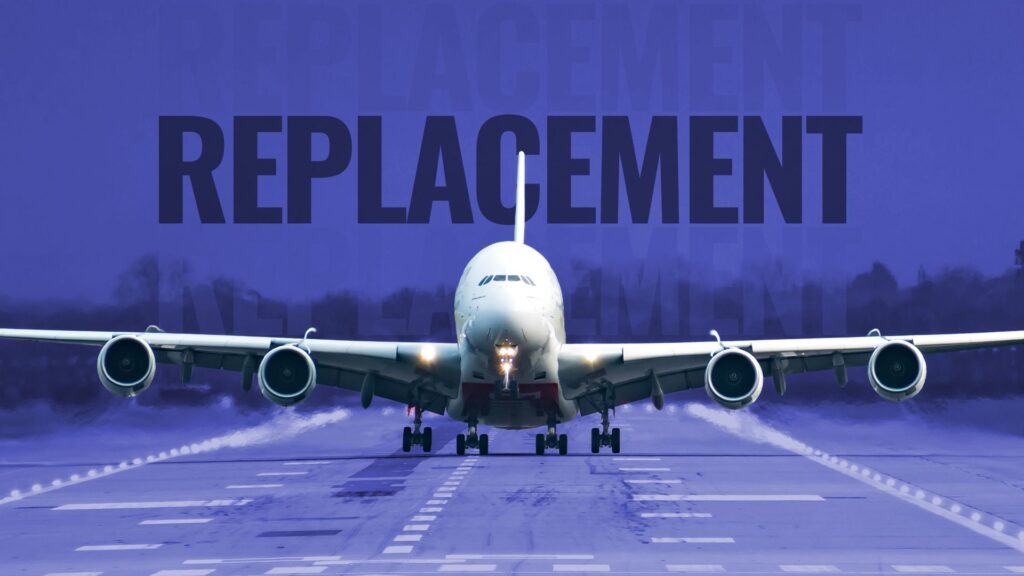
The iconic Airbus A380, once the pride of high-capacity air travel, is on a gradual decline as production came to an end in 2021. The COVID-19 pandemic significantly impacted demand for quadjet aircraft, leading to the discontinuation of the super jumbo’s production. In response to this trend, airlines are now looking towards the future, with the forthcoming Boeing 777X positioned as a likely successor for high-density routes.
Emirates, the largest operator of the A380, has maintained its fleet of over 100 aircraft, accounting for approximately half of the total production run. This Dubai-based airline has even acquired secondhand A380s from carriers that retired them due to rising operational costs. Notably, Dubai International Airport features specialized terminals equipped with high jet bridges designed specifically for the A380. While there are calls for a new A380neo, Airbus has yet to commit to this, citing a lack of market demand.
Introducing the Boeing 777X
Scheduled to enter service in 2027, the Boeing 777X will be the largest twin-engine airliner ever built. While it cannot match the A380’s passenger capacity or its distinctive second deck, the 777X is designed to meet the evolving demands of the aviation industry, particularly in long-haul routes. The pandemic has strained the economics of operating quadjets, prompting both Airbus and Boeing to pivot toward more efficient aircraft. The end of A380 production followed the cessation of the Boeing 747 line in 2023, emphasizing the need for a new generation of airliners.
The 777X will not only provide a passenger capacity similar to that of the Boeing 747-8 but will also offer significantly lower operating costs. This aircraft will require less maintenance and have more flexible deployment options. Its lighter frame and quieter engines enable it to access more airports, thereby enhancing operational efficiency.
Efficiency and Environmental Considerations
The 777X will typically seat between 400 and 415 passengers, which, while lower than the A380’s capacity of up to 800 in an all-economy configuration, addresses the profitability issues associated with filling such a vast number of seats. Airlines often struggle to maintain high load factors on A380 flights, making the 777X a more viable alternative for many routes.
Equipped with the revolutionary GE9X engines, the 777X will feature the largest turbofan engines ever installed on a commercial aircraft. These engines not only provide exceptional thrust—recorded at 134,300 pounds—but also promise improved fuel efficiency and lower emissions compared to older models. This is particularly pertinent as regulatory bodies and environmental activists increasingly scrutinize emissions from four-engine aircraft like the A380, A340, and 747.
The 777X is designed with a modern cabin environment that enhances passenger comfort. Its interior features customizable LED lighting, larger windows, and improved humidity levels, which can significantly reduce jet lag for long-haul travelers. The cabin’s pressurization is set at 6,000 feet, lower than the industry standard, promoting a more pleasant flying experience.
Adaptability and Future Prospects
One of the standout features of the 777X is its modular cabin design, allowing airlines to easily adjust configurations based on market demand. This flexibility enables operators to switch between high-density seating for busy routes and more spacious arrangements for premium services. As travel trends evolve, airlines can adapt their offerings without extensive overhauls.
While the 777X will inherit the legacy of the A380, it is important to note that no aircraft can truly replace the A380’s unique characteristics. The Airbus A380 is celebrated not only for its size but also for the luxurious experiences it offers, including onboard lounges and private suites. The 777X, while lacking these extravagant features, will provide a modern, efficient alternative that meets the current needs of the aviation market.
As the A380 gradually exits the skies, the Boeing 777X stands ready to take its place, promising a new era of high-capacity air travel that embraces efficiency and adaptability in a changing environment.






